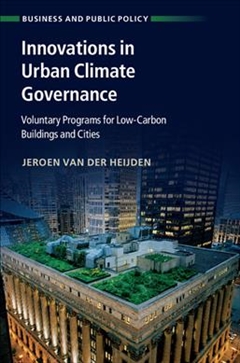
Qualitative Comparative Analysis (QCA) provides a bridge between case-oriented and variable-oriented research methods. It is rapidly making inroads in the social sciences.
This master class is designed for participants who have experience in qualitative or quantitative research and who are interested in applying qualitative comparative analysis (QCA) in their current or future studies.
This course will run from 9.30am to 4pm* online via Zoom.
Please look at the syllabus for timetable details.
*Please note: Courses will run on Australian Eastern Daylight Time (GMT +11)
(ie Melbourne, Sydney, Canberra daylight savings time. There will be 5 different time zones to consider in Summer
Professor Jeroen van der Heijden – With 20+ years of international research experience, Jeroen specializes in climate change solutions for urban environments, encompassing both mitigation and adaptation strategies. His journey includes an MSc in Architecture and Ph.D. in public administration from TU Delft (Netherlands) and academic roles at institutions worldwide, including professorships at the Australian National University (Australia), Amsterdam University (Netherlands), and the Victoria University of Wellington (New Zealand). He has authored over 80 peer-reviewed articles, 70 book chapters, and notable books on urban climate governance and action—many of which include applications of QCA.
Since 2007, he has been applying QCA in various research projects and has been teaching the method since 2017. More information on Jeroen’s work is available from www.jeroenvanderheijden.net.
This is an introductory master class. In it, we will explore the epistemological foundations of QCA and question what the method can and cannot be used for. The master class will introduce participants in (i) the basics of QCA—set-theory and Boolean algebra; (ii) the various approaches to QCA—crisp set, multi value, and fuzzy set; (iii) current debates on QCA; and, (iv) the challenges you may encounter when developing a QCA. To get our heads around the logic of QCA, we will carry out a few QCA applications by hand.
By the end of the master class, you will be able to assess whether QCA is a meaningful approach for your current or future research projects. You will also be able to assess, to some extent, the quality of QCA applications by others.
By the end of this two-day master class you will not be able to carry out a full QCA application. Participants who wish to be able to do so are advised to (also) complete the master class Qualitative Comparative Analysis: An application in 10 steps.
The target audience for this master class are researchers, practitioners and academics who have conducted at least one qualitative study, and are familiar with the process and context of qualitative research.
Day 1
• 9:30-10:00, Introductory session:
◦ Who is who? Why have you chosen this course? What do you expect to get out it?
◦ What are we going to do over the next two days? What are we not going to do?
• 10:00-11:00, Epistemological foundations of QCA:
◦ What are the epistemological foundations of QCA?
◦ Where is QCA positioned in relation to case-oriented and variable-oriented research?
• 11:00-11:15, Short break
• 11:15-12:30, To get an understanding of the very basics of QCA, we will carry out a QCA analysis by hand.
• 12:30-1:30, Lunch
• 1:30-2:30, What can QCA be used for?
◦ Data analysis, literature reviews, theory building, case selection, robustness tests
• 2:30-3:30, Further and future development of QCA as a method
◦ Ongoing critique to QCA as a method
• 3:30-4:00, Open discussion, recap of today’s terminology and concepts:
◦ Condition, outcome, conjunctural causation, equifinality, asymmetry, necessary condition, sufficient condition, logical minimisation.
• 4:00, Day ends
Day 2
• 9:30-10:00, Why a QCA analysis for your study?
◦ A relevant, but not often asked (or answered) question. Is the number of cases all that matters?
• 10:00-11:00, Selection of outcomes and conditions
◦ Theoretical foundations: QCA as a set-theoretic approach.
• 11:00-11:15, Short break
• 11:15-12:30, The number of conditions
◦ How many conditions can be included in the theoretical model?
• 12:30-1:30, Lunch
• 1:30-2:30, Calibration of data
◦ Crisp set QCA (csQCA), multivariate QCA (mvQCA), fuzzy set QCA (fsQCA)
• 2:30-3:30, Challenges and pitfalls in designing and undertaking a QCA project
• 3:30-4:00, Open discussion, recap of today’s terminology and concepts:
◦ Set theory, set relationship (vs correlation), boolean algebra, csQCA, mvQCA, fsQCA, data calibration (limits, membership, threshold point)
• 4:00, Workshop ends
This course will be delivered 'live' online using Zoom.
Participants will need a computer, however, you wll not apply any QCA software in this master class.
Participants will be expected to have experience with at least one qualitative research project or have undertaken an introductory level course in qualitative research methods. While some discussion of the technical elements of methods is presented during master class, participants should have a basic familiarity with data collection methods such as interviews, observation, and document analysis.
The instructor's notes will serve as the course text.
- Schneider, C. and C. Wagemann (2012). Set-Theoretic Methods for the Social Sciences. Cambridge, Cambridge University Press.
- van der Heijden, J. (2017). Innovations in Urban Climate Governance: Voluntary Programs for Low-Carbon Buildings and Cities. Cambridge, Cambridge University Press.
Other readings:
- Ragin, C. (2008). Redesigning Social Inquiry: Fuzzy Sets and Beyond. Chicago, Chicago University Press.
- Rihoux, B. and C. Ragin (2009). Configurational Comparative Analysis. London, Sage.
Q: Do I have to have had any qualitative research experience to do this course?
A: Yes, you will have been expected to have experience with at least one qualitative research project or have undertaken an introductory level course in qualitative research methods.
Q: Do I have to have had any experience with QCA to do this course?
A: No, but it is strongly recommended to familiarise yourself with the recommended texts before participating in this master class; particularly Schneider and Wagemann (2012).
Q: I already have some experience with QCA. Will I get anything out of this introductory course?
A: You absolutely will. Dr
Professor Jeroen van der Heijden – With 20+ years of international research experience, Jeroen specializes in climate change solutions for urban environments, encompassing both mitigation and adaptation strategies. His journey includes an MSc in Architecture and Ph.D. in public administration from TU Delft (Netherlands) and academic roles at institutions worldwide, including professorships at the Australian National University (Australia), Amsterdam University (Netherlands), and the Victoria University of Wellington (New Zealand). He has authored over 80 peer-reviewed articles, 70 book chapters, and notable books on urban climate governance and action—many of which include applications of QCA.
Since 2007, he has been applying QCA in various research projects and has been teaching the method since 2017. More information on Jeroen’s work is available from www.jeroenvanderheijden.net.
The instructor's notes will serve as the course text.
